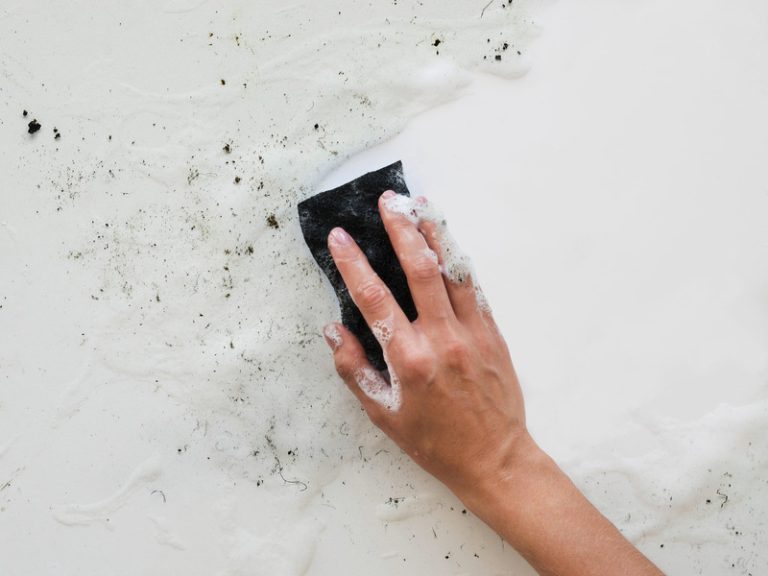As you prepare to move out, you might wonder can landlords charge for cleaning at end of tenancy or not. Understanding this aspect of your lease agreement is crucial to avoid any unexpected charges.
Often, lease agreements include clauses about property cleanliness that may result in additional costs if the property is not left in an acceptable condition. Knowing what is required can help you prepare and address any potential issues in advance. Stay tuned to learn more about this crucial aspect of the renting process.
Understanding End of Tenancy Cleaning
End-of-tenancy cleaning is a crucial process that UK landlords often demand to ensure the rental property is in pristine condition for the next tenant, and it is often specified in the tenancy agreement to comply with the Tenant Fees Act.
Can Landlords Conduct the End-of-Tenancy Cleaning?
Landlords can conduct end-of-tenancy cleaning themselves or hire a professional cleaning service to ensure the property meets the standards outlined in the tenancy agreement, as recommended by resources like Citizens Advice.
a. The Responsibilities of Landlords in Terms of Cleaning
Landlords are generally responsible for ensuring that the property is cleaned to a reasonable standard, taking into account normal wear and tear as stipulated in the tenancy agreement.
Regular cleaning of the property is crucial to maintain its condition and value over time. Landlords must address any damages or excessive filth that goes beyond what is considered typical wear and tear. This involves ensuring that common areas, appliances, and fixtures are kept clean and in good working order.
It is essential for landlords to conduct thorough inspections before and after a tenancy to document the property’s condition. By doing so, they can clearly distinguish between damages caused by tenants and those resulting from regular use.
b. The Responsibilities of Tenants in Terms of Cleaning
Tenants are typically required to leave the property in the same condition as when they moved in, which often involves thorough cleaning as per the end-of-tenancy requirements outlined in the tenancy agreement.
Common cleaning responsibilities that tenants are expected to undertake include:
- dusting and wiping all surfaces
- vacuuming or mopping floors
- cleaning kitchen appliances, cabinets, and countertops
- ensuring bathrooms are thoroughly sanitised
Tenants are usually required to remove all personal belongings and rubbish from the property, ensuring that it is left in a tidy and presentable state. Failure to meet these cleaning obligations may result in deductions from the security deposit as per the cleaning clauses stipulated in the tenancy agreement.
Can Landlords Charge For Cleaning At End Of Tenancy?
Landlords can charge tenants for end-of-tenancy cleaning if it is clearly specified in the tenancy agreement and aligns with the Tenant Fees Act; however, disputes over such charges can be mediated by the TDS.
a. The Factors That Determine if Landlords Can Charge for Cleaning
Several factors determine whether landlords can charge for cleaning, including the state of the property, the clauses in the tenancy agreement, and the distinction between damage and normal wear and tear.
The condition of the property plays a pivotal role in the landlord’s decision to charge for cleaning. If a tenant leaves the property in a dirty or unkempt state, it may necessitate extensive cleaning efforts, leading the landlord to pass on those costs. Terms in the tenancy agreement also affect this decision. Some agreements explicitly state the tenant’s responsibilities regarding cleaning, providing clarity on what constitutes reasonable wear and tear versus neglect.
b. The Consequences of Not Complying with Cleaning Responsibilities
Tenants who fail to comply with cleaning responsibilities may face deductions from their deposit, and unresolved disputes could be escalated to the TDS or Office of Fair Trading for resolution.
Failure to meet cleaning standards not only jeopardises the return of their deposit but also poses potential legal challenges that could spiral into lengthy mediation processes. Landlords have the right to deduct cleaning costs from the deposit to restore the property to its original state. If disagreements persist, tenants can find themselves entangled in formal dispute resolution procedures overseen by the Tenancy Deposit Scheme (TDS) or Office of Fair Trading. These mechanisms ensure fairness and adherence to regulations, ultimately safeguarding the interests of both parties involved.
The Importance of End of Tenancy Cleaning Important
End-of-tenancy cleaning is crucial for maintaining the quality of the property, ensuring it is ready for the next tenant, and helping landlords uphold their reputation and avoid potential disputes.
a. Ensures a Smooth Transition for the Next Tenant
A thorough end-of-tenancy cleaning ensures that the property is in excellent condition for the next tenant, making the move-out and move-in process smoother.
By providing a clean property, incoming tenants are greeted with a welcoming environment that sets a positive tone for their new living space. A freshly cleaned property not only enhances the overall appeal but also signifies that the landlord values their comfort and well-being.
A spotless property can lead to better tenant satisfaction and retention. Tenants are more likely to renew their tenancy and take better care of the property when they move into a place that is well-maintained and clean.
b. Protects the Landlord’s Property
Regular end-of-tenancy cleaning, particularly by a professional cleaning service, helps protect the landlord’s property by maintaining its condition and preventing long-term damage.
When tenants move out, properties can be left in varying states of cleanliness, and a thorough end-of-tenancy cleaning can ensure that any accumulated dirt, grime, or stains are removed, preserving the property’s aesthetic appeal.
Professional cleaning services offer the expertise and specialised equipment needed to tackle even the toughest cleaning challenges, such as deep carpet cleaning or eliminating stubborn odours, leaving the property fresh and inviting for the next occupants.
Regular professional cleaning can help identify potential maintenance issues early, preventing costly repairs down the line and ultimately increasing the property’s longevity. By investing in professional cleaning services, landlords can safeguard their investments and maintain high property values over time.
c. Avoids Disputes and Legal Issues
Adhering to end-of-tenancy cleaning standards helps avoid disputes and legal issues related to deposit deductions, with mediation provided by the TDS if necessary.
One of the main reasons for conflicts between landlords and tenants arises from differences in opinion regarding the cleanliness of the property at the end of the tenancy. By ensuring that the property is thoroughly cleaned and maintained according to the established standards, both parties can prevent potential disagreements.
Proper cleaning not only safeguards the tenant’s deposit but also maintains a positive relationship between the landlord and the tenant. In cases where disputes do occur despite adherence to cleaning standards, the Tenancy Deposit Scheme (TDS) plays a crucial role in facilitating resolution. The TDS acts as an impartial mediator, offering a platform for both parties to present their cases and reach a fair conclusion, ultimately reducing the need for expensive legal proceedings and fostering smoother transitions between tenancies.
d. Maintains a Good Reputation for the Landlord
Ensuring that a rental property is clean at the end of tenancy helps maintain the landlord’s reputation, showing a commitment to providing quality living conditions and professional service.
By upholding high cleanliness standards, the landlord not only portrays care for the property but also respects the tenants’ well-being. A well-maintained rental property creates a positive impression on potential renters, increasing the likelihood of attracting reliable tenants who appreciate and value the upkeep of the premises. End-of-tenancy cleaning plays a crucial role in ensuring that the property is ready for the next occupants, reflecting the landlord’s attention to detail and dedication to preserving the property’s condition over time.
In conclusion, knowing whether can landlords charge for cleaning at end of tenancy can significantly impact your move-out experience. By understanding the terms of your lease and ensuring the property is left in good condition, you can avoid unexpected costs and disputes.
To guarantee that your move-out is smooth and stress-free, entrust your end-of-tenancy cleaning to professionals. At TEKA Cleaning, we specialise in comprehensive end-of-tenancy cleaning services in Cambridge that meet all landlord expectations and standards. Our experienced team ensures every corner of the property is thoroughly cleaned, giving you the best chance to reclaim your full deposit and avoid any additional charges.
Don’t leave your move-out to chance. Secure your peace of mind and prevent costly deductions by choosing TEKA Cleaning. Contact us today at 0800 123 4567 to schedule your professional end-of-tenancy clean. Let us handle the details so you can focus on your next chapter without worry!
Read also:











